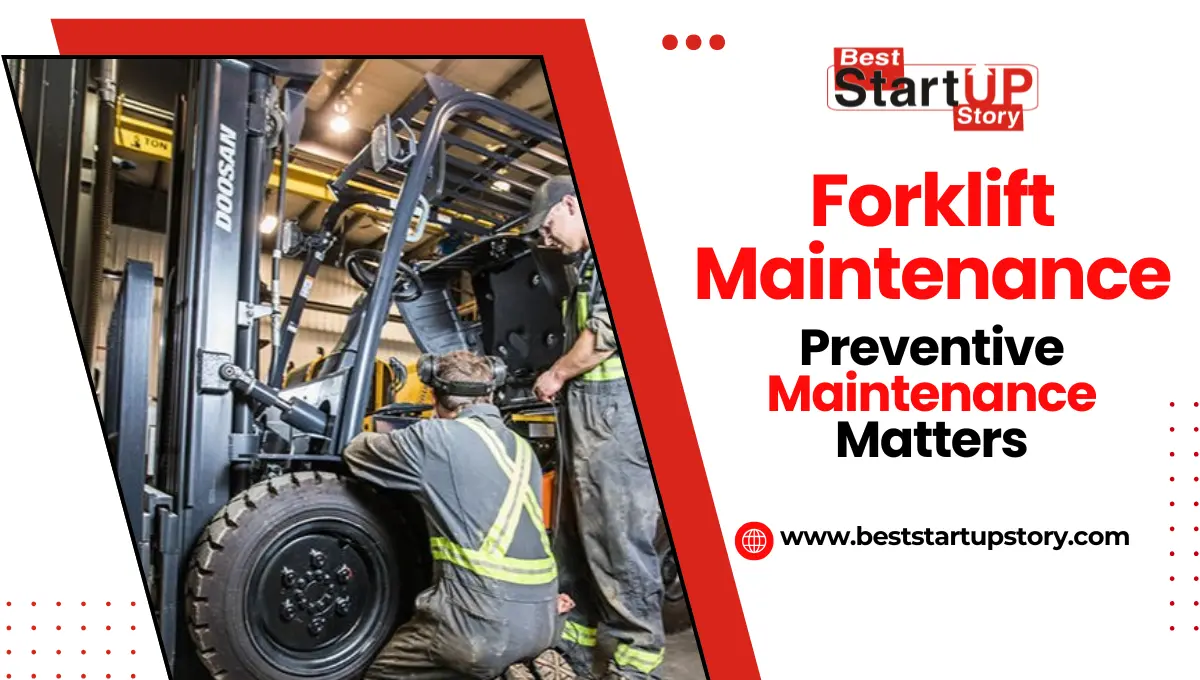In any industrial, warehouse, or manufacturing environment, forklifts play a vital role in moving heavy loads, managing inventory, and maintaining smooth operations. As essential equipment, forklifts are heavily used every day, and without proper care, they can experience mechanical issues that halt productivity and compromise safety. Ensuring that these machines remain in top condition requires consistent attention, which is where professional forklift service becomes indispensable. Investing in quality maintenance not only extends the lifespan of forklifts but also guarantees the safety of operators and the efficiency of operations.
Forklifts are complex machines with hydraulic systems, engines, electrical components, and safety mechanisms that must function seamlessly. Over time, wear and tear, high operational demands, and environmental factors can lead to decreased performance or unexpected breakdowns. Scheduling regular forklift service allows businesses to address minor issues before they escalate into costly repairs or operational downtime. This approach ensures that fleets remain fully operational and capable of handling heavy-duty tasks, maintaining productivity levels even during peak demand periods.
The Importance of Professional Forklift Service
Forklift service goes beyond simple mechanical repairs. It encompasses a range of preventive maintenance practices designed to identify potential problems early, ensuring machines operate safely and efficiently. Professional service providers perform comprehensive inspections, including checking hydraulic systems, brakes, tires, engines, and electrical components. Regular maintenance prevents sudden failures, reduces emergency repair costs, and enhances overall reliability.
Safety is another critical aspect of forklift service. Forklifts are prone to accidents if their components malfunction, and routine inspections reduce the risk of workplace injuries. Service experts ensure that all safety systems, including warning lights, horn functions, and operator restraints, are in perfect working order. By prioritizing forklift service, companies not only protect their employees but also comply with industry regulations and safety standards.
Common Forklift Maintenance Services
A professional forklift service typically includes multiple components aimed at maintaining peak performance:
- Engine and Transmission Checks: Forklift engines, whether diesel, electric, or LPG-powered, require regular inspections to ensure smooth operation. Transmission systems also need careful monitoring to prevent gear malfunctions.
- Hydraulic System Maintenance: Forklifts rely on hydraulic systems for lifting and lowering loads. Leaks, low fluid levels, or damaged hoses can compromise performance and safety.
- Brake and Tire Inspection: Brakes must respond reliably, and tires need proper inflation and tread condition. Regular checks prevent accidents caused by mechanical failure or reduced traction.
- Battery and Electrical System Service: Electric forklifts require frequent battery maintenance, including checking charge levels, terminals, and connections. Electrical components such as controls and wiring must also be inspected.
- Fork and Mast Examination: Forks and mast mechanisms handle heavy loads daily. Any deformation or damage can jeopardize load stability, so professional inspections ensure they are in optimal condition.
- Lubrication and Cleaning: Keeping components properly lubricated reduces wear, and regular cleaning prevents dirt or debris from affecting moving parts.
These services collectively maintain the forklift’s reliability and longevity, preventing operational interruptions that could affect productivity.
Benefits of Regular Forklift Service
Investing in routine forklift service provides a range of benefits that impact both operations and finances. The primary advantage is enhanced safety. Regular inspections and preventive maintenance reduce the likelihood of accidents caused by equipment malfunction. This protects operators and other personnel in the workplace, contributing to a safer, more productive environment.
Another benefit is increased equipment lifespan. Forklifts are a significant investment, and neglecting maintenance can lead to premature wear and costly repairs. Regular service ensures that components function correctly and that small issues are addressed before they escalate, extending the usable life of the machinery.
Operational efficiency is also improved. A well-maintained forklift performs consistently, ensuring that load handling, stacking, and transportation are executed without delays. Downtime due to breakdowns can be expensive, and scheduled maintenance minimizes these disruptions. Moreover, companies save money in the long term by avoiding emergency repairs and unplanned replacements, making forklift service a strategic investment in operational continuity.
Signs Your Forklift Needs Immediate Service
Even with routine maintenance, forklifts can develop issues that require prompt attention. Recognizing these signs early can prevent major failures:
- Unusual Noises: Grinding, squeaking, or knocking sounds may indicate mechanical or hydraulic issues.
- Slow Performance: A reduction in lifting speed or response time can signal engine or transmission problems.
- Leaking Fluids: Hydraulic or fuel leaks must be addressed immediately to prevent safety hazards.
- Warning Lights or Fault Codes: Modern forklifts often have diagnostic systems that alert operators to mechanical or electrical malfunctions.
- Uneven Tire Wear: This can affect stability and may indicate alignment or suspension problems.
Timely service in response to these warning signs helps prevent accidents, reduces repair costs, and ensures that operations continue smoothly.
Choosing the Right Forklift Service Provider
Selecting a reliable service provider is crucial for maintaining your equipment. Businesses should consider providers with certified technicians, experience across multiple forklift types, and the ability to offer both on-site and off-site service. A trustworthy provider will also use genuine replacement parts and follow manufacturer-recommended maintenance schedules.
Service contracts can offer additional benefits, including priority support, discounted labor rates, and scheduled inspections. These agreements provide peace of mind, ensuring that forklifts receive timely attention and reducing unexpected downtime. For companies with multiple forklifts, comprehensive service packages can optimize fleet performance while controlling maintenance costs.
The Role of Preventive Maintenance in Forklift Service
Preventive maintenance is at the heart of effective forklift service. Rather than waiting for breakdowns, preventive strategies focus on regular inspections, timely replacements of wear parts, and continuous monitoring of critical components. This approach minimizes unexpected failures, maximizes equipment availability, and ensures compliance with safety standards.
Preventive maintenance schedules are typically based on operating hours, workload, and manufacturer recommendations. Routine tasks include checking fluid levels, inspecting safety systems, tightening loose components, cleaning, and lubricating moving parts. By adhering to preventive maintenance, businesses reduce long-term costs, improve forklift reliability, and maintain productivity without interruption.
Maximizing Forklift Performance and Longevity
To achieve optimal forklift performance, businesses must combine professional service with responsible operational practices. Operators should be trained to handle forklifts safely, avoid overloading, and report minor issues promptly. Additionally, keeping the workplace clean, ensuring proper charging of batteries for electric forklifts, and monitoring fluid levels regularly support the effectiveness of professional service efforts.
A comprehensive approach that integrates operator training, preventive maintenance, and professional forklift service ensures that equipment performs reliably, lasts longer, and contributes to safe, efficient operations.
Conclusion: Ensuring Safe and Efficient Operations Through Forklift Service
Forklifts are critical to industrial, warehouse, and manufacturing operations. Maintaining their performance and safety through professional forklift service ensures continuous productivity, reduces downtime, and protects operators. By addressing minor issues early, adhering to preventive maintenance schedules, and selecting qualified service providers, businesses can extend the lifespan of their equipment, improve efficiency, and safeguard their workforce.
Regular service is not merely a maintenance task; it is a strategic investment that strengthens operations, reduces costs, and guarantees that forklifts continue to meet the demands of dynamic industrial environments. Prioritizing forklift service allows organizations to achieve safer, smarter, and more efficient workflow outcomes, demonstrating the true value of well-maintained material handling equipment.
Also Read: How to Prevent Bounced Emails Using an Email Verifier

